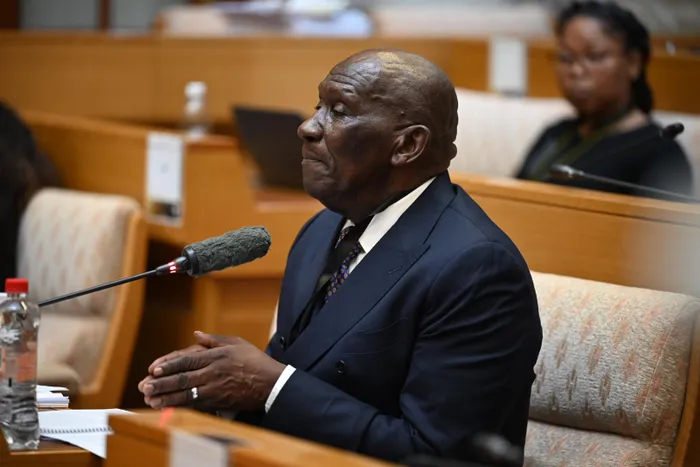Key takeaways from Bheki Cele's testimony at the Ad Hoc Committee inquiry
Mercury Correspondent|Published

Former police minister Bheki Cele appeared before the Ad Hoc Committee looking into police corruption on Thursday.
Image: Armand Hough / Independent Newspapers
Former police minister and commissioner Bheki Cele appeared on Thursday before the Ad Hoc Committee in Parliament that is probing allegations made by KwaZulu-Natal Police Commissioner Nhlanhla Mkhwanazi.
The inquiry is also probing political interference in the workings of the SAPS. Cele was the Minister of Police from February 2018 to 17 June 2024, preceding the tenure of suspended Minister Senzo Mchunu.
Here are some important points from Cele's testimony:
Vusimuzi “Cat” Matlala
- He knows attempted murder - accused tenderpreneur Vusimuzi “Cat” Matlala “very well.” He described Matlala as an acquaintance and not a friend. He recounted meeting him at a hotel in Durban; he could not recall the date but said it took place after the raid that occurred at Matlala’s house last December.
- He denies having any acquaintance with businessman Brown Mogotsi. He said he doesn't even have him as a contact on WhatsApp.
- At his meeting with Matlala, Cele claims the businessman told him that he met with suspended police minister Senzo Mchunu and Mogotsi - “The three of them spoke about him (Matlala) because he has money to fund his (Mchunu’s) project of becoming the president or deputy president.”
- Matlala also informed him that he was asked to write an affidavit about the raid at his home so that disciplinary action could be taken against Dumisani Khumalo, the head of Crime Intelligence and project manager of the Political Killings Task Team.
Political killings task team
- Cele contradicted suspended Police Minister Senzo Mchunu on matters related to the formation and disestablishment of the task team. Mchunu previously told the inquiry that no Inter-Ministerial Committee was overseeing the task team in the seventh administration, and he disbanded it for various reasons that included budgetary constraints and a new organogram providing for specialised units.
- However, Cele said the team was formed by the Inter-Ministerial Committee that was announced by President Cyril Ramaphosa in 2018, and in his view, only the president could disestablish it.
- He staunchly defended the task team, saying it was “good for the country” and recounted some of the high-profile cases in which the unit had displayed effectiveness.